There is much about the catastrophic sinking of the Titanic in 1912 that has entered into common knowledge. The Unsinkable Molly Brown, "women and children first," the band playing even as water spilled over the decks, the ship's designer and captain both maintaining their posts until the end--these are all things most people can recall about the historic event when prompted. Yet, they are just markers in a larger story, details that are required for any retelling, but merely the starting point, not the finishing touches.
Walter Lord's book A Night to Remember was the first definitive retelling of the tragedy. The author sought out Titanic survivors and interviewed them about what they saw. The 1958 film adaptation was a personal project for producer William MacQuitty. Even half a century later, many still considered it to be "too soon." On one of the supplements on the Criterion Blu-Ray, MacQuitty notes that shipping companies refused the use of their ocean liners for shooting because no one wanted their boat associated with the worst maritime disaster of the 20th Century. Undaunted, MacQuitty soldiered on.
A Night to Remember was the first definitive retelling of the tragedy. The author sought out Titanic survivors and interviewed them about what they saw. The 1958 film adaptation was a personal project for producer William MacQuitty. Even half a century later, many still considered it to be "too soon." On one of the supplements on the Criterion Blu-Ray, MacQuitty notes that shipping companies refused the use of their ocean liners for shooting because no one wanted their boat associated with the worst maritime disaster of the 20th Century. Undaunted, MacQuitty soldiered on.
The eventual film version of A Night to Remember was a landmark of British cinema. The sober account of the ill-fated maiden voyage of the Titanic was eventually adapted by Eric Ambler and directed by Roy Ward Baker, whose other notable credit (at least for me) is the chilly Marilyn Monroe thriller Don't Bother to Knock
A Night to Remember is more docudrama than melodrama. The structural outline is simple: passengers gathering for launch, the early part of the voyage, and then the sinking. The latter element takes up most of the film, and to be honest, it isn't until the crisis is underway that A Night to Remember starts to warm up. The script moves between the classes, noting the difference in comforts and how this will eventually come into play when it's time to abandon ship. The fancy upstairs reserved for the wealthy upper classes, the less ostentatious second class, and, of course, steerage, with is full of poor immigrants in search of a better life rather than sailing for pleasure. We are also privy to the completely separate world of the ship's crew, of the people whose duty it is to keep the Titanic in operation. Even here, though, we can see similar divisions. There are officers and there are enlisted men, technical operators and grunts, and also servants. It is a society within a society. Indeed, early in A Night to Remember, someone likens the ship to a floating city; aptly, the boat operates as such.
Not that these lines are drawn sharply. The elegance of Baker's movie is that, except for a few instances, it eschews heavy dramatization in favor of letting the details of the situation speak for themselves. There is plenty going on in the story that provides a natural tension, such as the unceasing efforts of the communication officer to raise help, the filmmakers don't need to manufacture any added suspense. We know that more than half of the people on board the Titanic died, but A Night to Remember's anxiety is in wondering who will survive and how. The horror of the real events need not be overstated--the off-screen screams of unseen passengers cause genuine shivers--we know the outcome and have our own fears about being in a similar situation already in place. Just seeing all that water pouring into the cabins is enough to put me on edge.
The tone of the picture is very British, adhering to the "stiff upper lip" cliché. One should not mistake this for a lack of emotion or even coldness, however; on the contrary, Baker finds proper heartbreak within the reserved behavior. The scenes with the young family, when the father gathers up his wife and three children and takes them to the lifeboats, careful not to tip his hand as to the full breadth of the emergency or the likelihood of his being able to follow, are probably the most moving in the whole story. She knows the truth, even if he won't speak it. Likewise, the movie is not without humor. The baker getting drunk in his room provides consistent laughter without being crass. It alleviates the heaviness just enough so that we aren't weighed down.
It's not that I have a problem with taking the story the other way. On the contrary. I am actually on record as liking the James Cameron Titanic, which certainly goes for a far more histrionic level of Hollywood dramatics. I think it's good that we have both pictures. One balances out the other. One aspect Cameron's approach might have over Baker's is that, in Titanic, we do get to know and care about the characters more; in A Night to Remember, the focus figures get such a short time in the spotlight, it takes most of the effort we can give just to keep them straight. The one thing they both have in common, however, is that they are crowning technical achievements. Both Cameron and Baker were concerned with details, and A Night to Remember's special effects are astonishing for any era, not just 1958. Even with the heightened clarity of high definition, very few cracks show. MacQuitty's team has succeeded in creating a seamless illusion, jumping between models, sets, a real ship, and in the launch scenes, archival footage of the actual Titanic. There's never a clear demarcation between any of the elements. A Night to Remember is all of one piece, and thus is wholly convincing.
A Night to Remember was one of Criterion's earliest DVD releases, and though it's only been a little over a decade since that first edition, technology has moved light years since. The restored digital transfer and uncompressed soundtrack created for the Blu-Ray serve to further prove just how fantastic this new technology is for older films. The black-and-white photography looks flawless, and despite only being a mono audio track, the soundscape has a lot of depth. Criterion has further rounded out the package with video features focusing on the survivors of the Titanic, as well as a BBC documentary examining the science behind icebergs and another looking at the making of A Night to Remember, with extensive interviews with MacQuitty and author Walter Lord. (The latter feature, as well as the history-focused audio commentary, were also on the 1998 DVD.) It's an impressive presentation, and I am glad to have been able to experience the film again in this way. I'll confess, I wasn't that taken with A Night to Remember when I watched it previously, and so am pleased to have been so moved by it this second time around.
This disc was provided by the Criterion Collection for purposes of review.
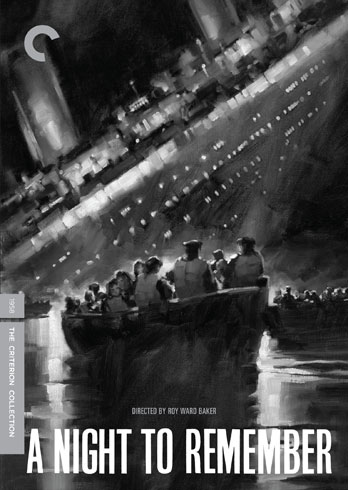
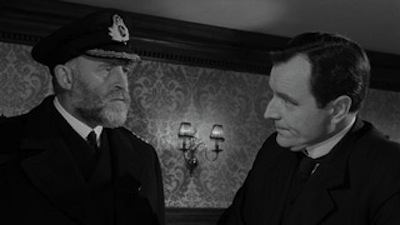
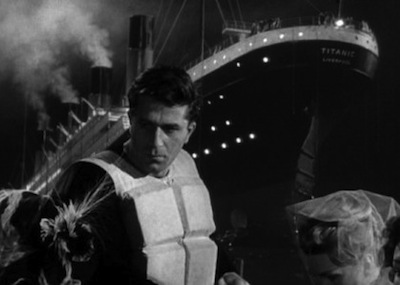
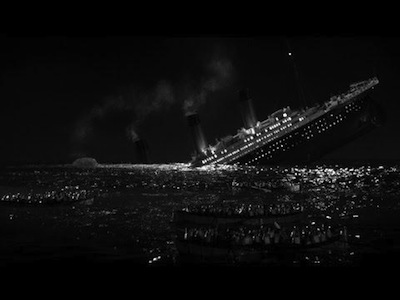
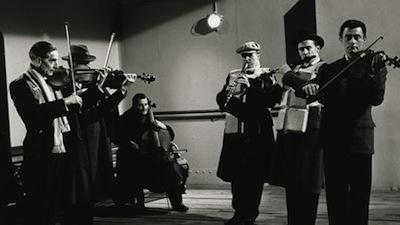

No comments:
Post a Comment